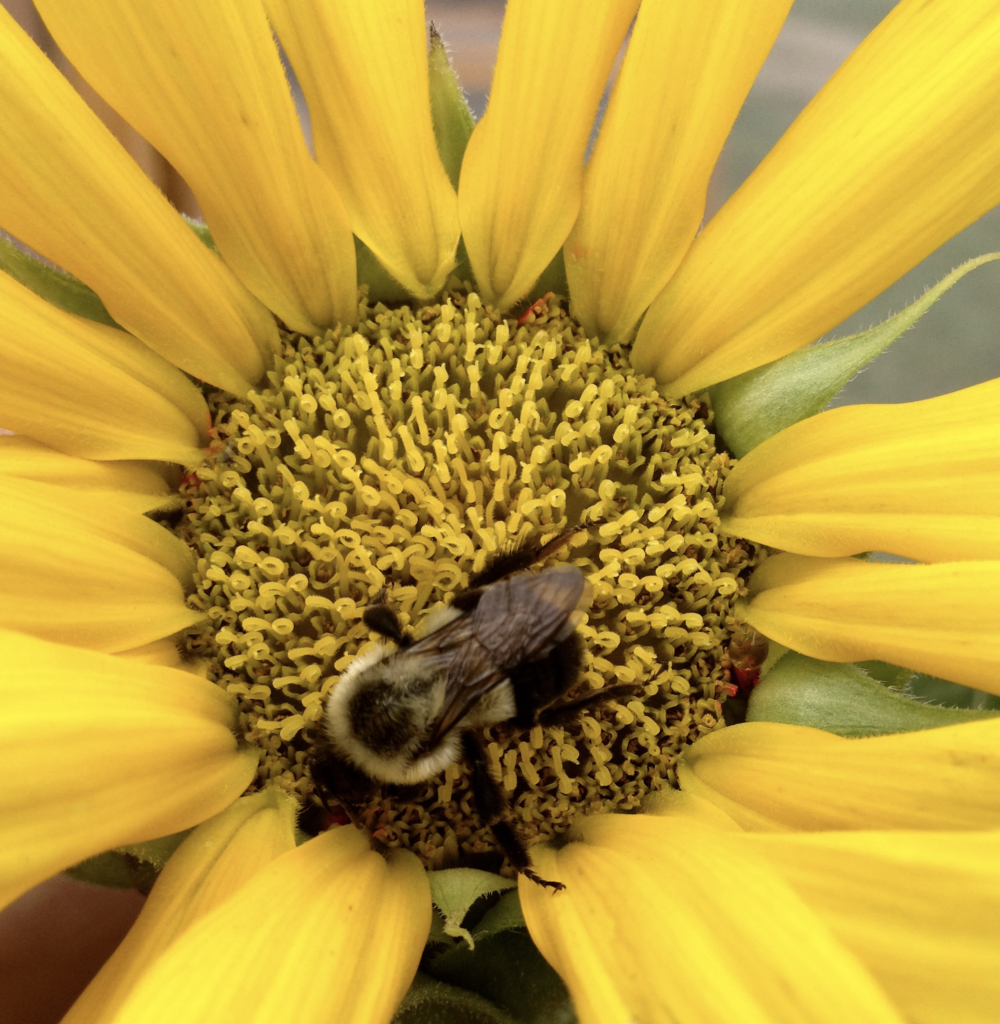Tuesday, April 11th
In-Person Meeting
Virtual Zoom Option
7:30 PM EST
Disease where you dine: The role of floral traits in pollinator-pathogen interactions

ABSTRACT: Food resources can alter host-pathogen dynamics not only via nutrition, but in some cases via chemical or mechanical traits that reduce infection. Many pollinator species are declining due to a range of factors including parasites and pathogens, but the potential for specific plant species to structure pollinator-pathogen interactions is largely unrecognized. Our previous work discovered that consuming sunflower pollen (Helianthus annuus) dramatically and consistently reduced infection by the gut pathogen Crithidia bombi in the common eastern bumble bee, Bombus impatiens. We have since expanded this work to consider (a) the breadth of this effect, in terms of both the extent of plant species whose pollen reduces Crithidia and the range of bee castes and species that are responsive, (b) the mechanism underlying this effect and (c) the field consequences of sunflower pollen for pollinator health. Our work demonstrates the role that a single key floral resource could play in pollinator-pathogen dynamics. Our current future research goals are to link our understanding of this system across scales from molecular to landscape.
NOTICE: Welcome back to CEC meetings of the 2022-2023 academic year! We will be holding hybrid meetings to accommodate COVID-19 precautions and audience members from around the world.
For those able to attend in person, we will have an informal dinner at 6:00 pm at Cambridge Common Restaurant with the speaker, followed by our formal meeting (7:30 – 9:00 pm) in the Gilbert Room of the Museum of Comparative Zoology (there will be signs to help direct). The meeting will begin with club announcements, followed by a 60-minute presentation by the invited speaker and Q&A. Membership is open to amateur and professional entomologists.


